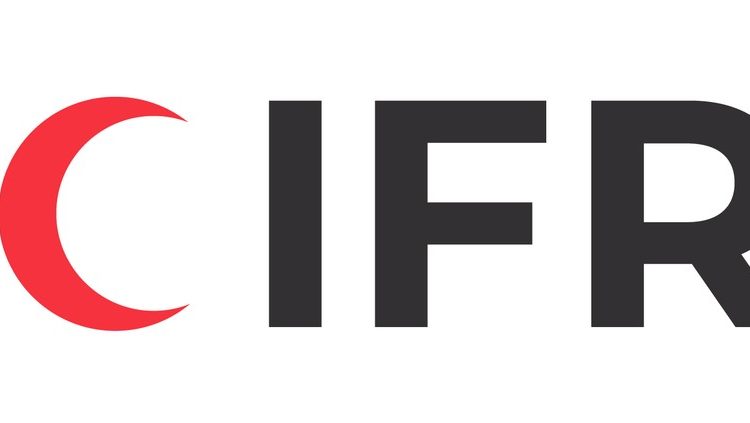A lifeline amidst drought: How the Zambia Red Cross is bringing hope to families on the forefront of the climate crisis
In Zambia, where the agricultural landscape once flourished, fields are now desolate. Crops wither under relentless drought brought on by El Niño, leaving 84 districts in crisis. The Zambia Red Cross Society (ZRCS), in partnership with the IFRC, is providing a vital lifeline, delivering not just aid, but hope. Some 6.6 million people still urgently need support.
The impacts are everywhere to be seen. Once lush fields of green crops are now dusty brown tracts of withered stalks. Businesses and restaurants have shut their doors. Livestock look weak and emaciated.
These are just a few of the visible impacts of the prolonged drought that is turning the lives of millions of Zambians upside down as people face serious issues of food scarcity, livestock and crop loss, and escalating economic hardships.
In response to the mounting crisis, ZRCS launched the Drought Cash Assistance Program in Chikankata District in November 2024 a critical initiative aimed at helping families survive the severe drought.
Through this program, 5,864 families receive 600 Zambian Kwacha (roughly 20 US dollars) per month for four months, allowing them to meet immediate needs like food and water.
At a time when inflation has driven up the cost of basic goods, this assistance is more than a financial boost—it’s a source of relief and resilience for families struggling to get by day-to-day.
The impact extends beyond Chikankata. In Sinazongwe District, where the drought’s devastation is particularly acute, the Zambia Red Cross launched a program of multi-purpose cash transfers, along with support that helps farmers grow their winter crops.
Since August 2024, over 5,200 households have benefited, with access to essential farming supplies—maize, okra seeds, and fertilizers—that offer them a way to revive their livelihoods. This initiative empowers local farmers to bring life back to their land, giving them a chance to rebuild and restore their communities.
Supported by the IFRC, the European Union’s ECHO Programmatic Partnership project, and bilateral aid from the Czech Republic, this work is part of a broader ZRCS response across five drought-affected districts.
With approximately 1.5 million Swiss Francs mobilized, more than 11,000 households across Zambia are receiving critical assistance, spanning food security, livelihoods, health, and water, sanitation, and hygiene (WASH) support.
A lifeline of hope and survival
For families in these regions, this cash assistance is more than just financial aid—it’s a pathway to survival and stability. Ninety-year-old Musambo Sianjonkoma, unable to seek food on her own, says the support has had a profound impact.
“At my age, I can’t go out and look for food,” Musambo says. “This support will help me eat.”
For her and thousands of others, the program brings not only food but dignity and peace of mind.
In Sinazongwe, farmer Wisdom Lubinda received maize and okra seeds and other support for winter crops.
“The seeds they provided were like hope in a packet,” says Wisdom, adding that the chance of a successful harvest offers the promise of funding his siblings’ education and securing his family’s future.
For 27-year-old Anita Maalila from Upper Kaleya, the drought meant the end of her small restaurant—the only income source for her and her two children after her husband left.
Declared a national disaster, the crisis decimated agriculture and left Anita struggling with small-scale farming to survive. Hope arrived through the emergency cash assistance program. With 600 Kwacha a month, Anita plans to grow potatoes and maize to rebuild her livelihood.
“This assistance is a blessing,” she shared, her voice filled with renewed determination.
An appeal to save lives
To support the critical work of the ZRCS through this severe droughts, the IFRC issued an emergency appeal to scale up the response. The support from the appeal is key to providing the cash transfers and crop support, which help protect what little people have left while offering a foundation on which to rebuild.
These lifelines are urgent, says ZRCS Secretary-General Cosmas Sakala.
“We’re facing a devastating double threat in Zambia: a crippling drought has caused farmers to lose 80 per cent of their crops, and a cholera outbreak is putting immense strain on families,” Sakala noted. “I’ve seen the worry on people’s faces and heard their anguish, unsure where their next meal will come from.
“Climate change is making these crises more frequent and severe. We are already responding with emergency cash transfers, food distribution, and hygiene kits, but we urgently need your help to scale up our support and reach the most vulnerable communities.”
Distributed by APO Group on behalf of International Federation of Red Cross and Red Crescent Societies (IFRC).


